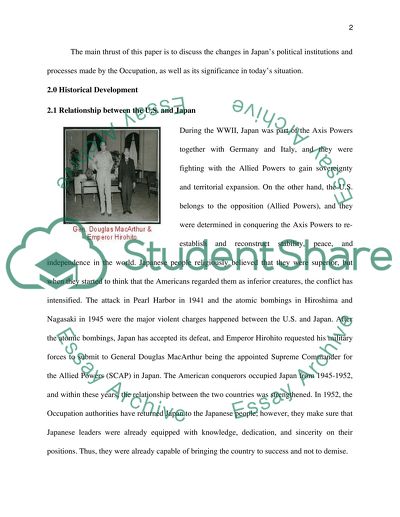Cite this document
(“American Military Occupation of Japan (1945-1952) Changed Japans Term Paper”, n.d.)
Retrieved de https://studentshare.org/history/1392777-american-military-occupation-of-japan-1945-1952-changed-japans-political-institutions-and-processes
Retrieved de https://studentshare.org/history/1392777-american-military-occupation-of-japan-1945-1952-changed-japans-political-institutions-and-processes
(American Military Occupation of Japan (1945-1952) Changed Japans Term Paper)
https://studentshare.org/history/1392777-american-military-occupation-of-japan-1945-1952-changed-japans-political-institutions-and-processes.
https://studentshare.org/history/1392777-american-military-occupation-of-japan-1945-1952-changed-japans-political-institutions-and-processes.
“American Military Occupation of Japan (1945-1952) Changed Japans Term Paper”, n.d. https://studentshare.org/history/1392777-american-military-occupation-of-japan-1945-1952-changed-japans-political-institutions-and-processes.


